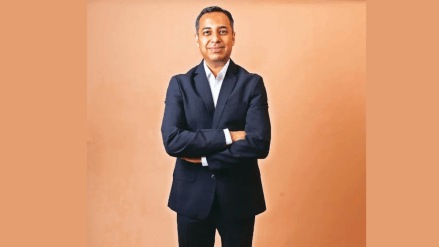Gunjit Jain, Executive Vice-President, Marketing, Colgate-Palmolive India talks to Alokananda Chakraborty about why the company is banking on technology and premiumisation to drive growth. Edited excerpts:
Please take us through the technology input in your latest oral health campaign.
We call it the oral health movement rather than another ad campaign. We started it because a large number of Indians have oral health issues but hardly anybody goes to the dentist. So, nobody realises they have an issue until it turns painful.
The reality is that we are all supposed to go to a dentist regularly but only 1 out of 10 Indians did last year. In other words, oral health awareness is an issue. To make it simple for people, we’ve come up with an AI-enabled WhatsApp-based tool where you can answer a few simple questions, take 3 pictures of your teeth, send it, and in an instant you get an AI-screened dental report. We’ve also tied up with the Indian Dental Association and we have access to 50,000 dentists. So, you can just put in your pin code and you will get a free dental consultation.
We’ve got resounding feedback from the industry, from consumers and we’ve got several thousand screenings done already. The most important thing is this is not a one-time ad, it will continue so we are calling it a ‘movement’.
How much time did the whole process take and how are you dealing with the issue of data security?
It’s been more than a year in the making and the number one reason is when we get into AI, it comes with a lot of responsibility. We are collecting first-party health data of individuals, including their pictures. So confidentiality and the robustness of the technology is key. The data we are collecting has to be used only for the purpose for which it is being collected.
What steps are you taking to improve per capita toothpaste consumption?
Here we have to focus on the difference between penetration and consumption. Toothpaste as a category has universal penetration in this country. Every household in urban and rural India has toothpaste at home, which wasn’t the case 10 years ago. But does that mean that people are using toothpaste and brushing often enough? The answer is a resounding no. The per capita consumption, which is the grammage of toothpaste used per individual in the country, is behind some of our neighbouring countries like Thailand or the Philippines.
About 80% of urban Indians do not brush at night, they only brush once a day. 55% of rural Indians brush not daily but occasionally. And nobody goes to the dentist. As market leaders, it is our responsibility to make people realise that brushing every day — not just in the morning but also brushing at night — reduces the chances of cavities by 50%.
The company has also spoken about driving growth through premiumisation. Can you elaborate?
Oral care has lagged in premiumisation. Why so? A very honest answer is that for several years the market leader, which is Colgate, did not invest in generating awareness and driving that seriously. And it is our responsibility to do it.
We’ve picked it up as one of the key strategies for growth. You need superior products that can deliver perceivable superior benefits. You need superior communication to convince people that this is the right thing. We’ve got products on three specific fronts. For anybody who’s proactive about their oral health, we are owning the “preventive” segment with our flagship product Colgate Total. Second, for those who want teeth whitening, which is oral beauty, we’ve got Colgate Visible White. And then for people who’ve got problems, we have therapeutic solutions like a Colgate Sensitive or a Colgate PerioGard, which we’ve recently introduced for gum problems.
